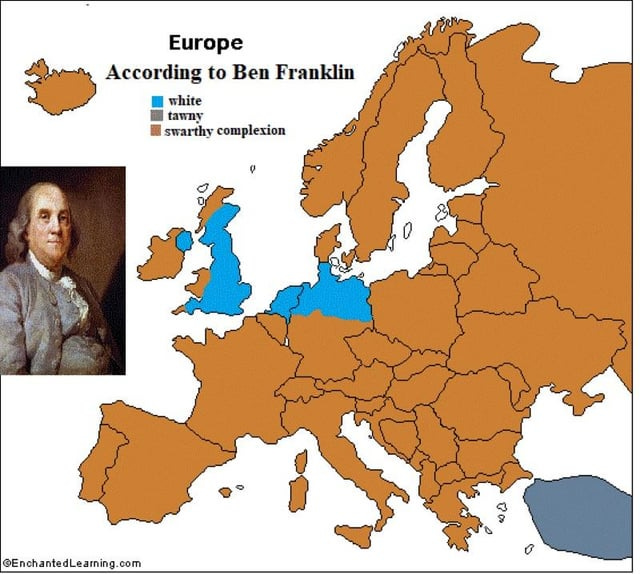Et Tu, White Nationalism?
MAGA, America First and the Vicissitudes of Policy
The current blood feud between “America First” and “MAGA” and its “Israel First” cohort represents an important divergence for broader government and economic policy in the United States. A few key perceptions are emerging (with varying degrees of truth to them):
The 2003 Iraq War was a PNAC (Project for the New American Century) construction which, implicitly because of the particular stakeholders at PNAC, fundamentally benefitted Israel by encouraging more structurally permanent engagement of the United States in the Middle East
Two groups perceive Iraq as a fundamental cost of their miseries: both the right wing working class and veterans adjacent to Iraq, as well as the left wing and immigrants whose migrations were caused by the war or subsequent conflicts (Iraq, Syria, Afghanistan by association, and the increased footprint of the Gulf States in American universities)
With Iraq been the most substantial US policy blunder since Vietnam, the institutional class cannot avoid reconciling some of these views with the actual state of US policy by a) reducing US exposure to the Middle East and b) reducing the influence of whomever was responsible for these foreign policy misadventures
With each of these constituent parts looking for someone to blame, and the broad group of individuals associated with the Iraq War’s genesis within PNAC - whose leadership broadly could be considered “Jewish” and or “Zionist” - both parties in the United States are beginning a process of divorcing themselves from Israel, which will have a broad range of consequences on US policy going forward
Simultaneously, Benjamin Netanyahu has suggested that Israel should get ahead of this process by understanding the United States as “The New Rome” (not explicitly, but strongly implied), from which would logically follow the increased migration of Jewish people, dollars and influence from the United States into Israel, increased consolidation of Zionist Nationalism, and a reduced dependency on US Foreign Aid, along with (presumably) a willingness to contradict US interests when it is beneficial to Israel (e.g. in concert with Russia, China or others)
The last point is not necessarily the concern of this article - the United States only needed to engage in the Middle East since the 1970s in order to maintain liquidity in global energy markets. Since the Fracking Revolution, along with the re-emergence of Nuclear as a politically viable alternative, US engagement in the Middle East only benefits Israel, China and to a lesser extent Russia in that it can use it for propaganda purposes (fall of Assad’s Syria notwithstanding).
In the American context, the coalescing of anti-Israel, anti-Zionist sentiment has been “tagged” as antisemitic in the mainstream, but sufficient alternative media exists and with enough momentum to boot that more circumspect perspectives are taking hold. For instance, ideas including those that: 1) many Jews oppose Zionism (at least in its more aggressive forms), 2) Zionism has proceeded without sufficient consideration of the consequences of the pre-existing population of the region, 3) Israel already covertly undermines US interests and intelligence gathering where it sees benefit and 4) the United States does not have the bandwidth for foreign entanglements given the current state of the domestic populace - all of these perceptions make it more difficult to continue to make a 1-to-1 identity between anti-Zionism and anti-Semitism. Surely there are plenty of people who qualify strongly in both policies, but in terms of what is both legally and popularly viable, the anti-nationalist narrative is far more of a political “winner” than the anti-ethnic one.
In the same unfolding of the hard identity between anti-Semitism and anti-Zionism, the corollary accusation of anti-Semitism and White Nationalism - firmly set in the American liberal imagination since the events of Nazi Germany and World War II - also begins to untangle. The reality for American White Nationalists is that they have been “chic edge lords”, attempting to be aggressive in their perspective in such a manner as to be totally absurd. Whether it was the German-American Bund, skinheads or tiki torches for a statue Robert E Lee, the vast majority of Americans find the aesthetic of American White Nationalism fundamentally unserious, in part because - though America has always had racial stratification and White hegemony - the country is fundamentally one of mixed racial groups since its very beginning, to such an extent that even the definition of Whiteness has been substantially watered down since the days of Benjamin Franklin.
source: https://www.reddit.com/r/AncestryDNA/comments/17hp58h/according_to_ben_franklin/
in reference to: https://www.contextus.org/Benjamin_Franklin%2C_On_the_Freedom_of_the_Press%2C_1737.67?lang=en
And so, while “White Nationalism” is still tossed about as an accusation by some and seemingly worn as an ironic badge (with some grains of truth perhaps) by others, what is the real goal of an anti-Zionist, nativist, red-brown allied populist United States? What are the objectives that will guide policy and popular success?
Steve Bannon has called it Economic Nationalism. In days of old it may have been National Socialism, or Social Imperialism, but I would suggest that the mood of today is more of a sort of Neo-Irredentism - let us explain.
Much of the political project followed by National Socialist ideology in the 1930s was driven to reunify the German peoples across east and central Europe who were separated by the breakup of the Austro-Hungarian Empire and the re-drawing of borders that followed World War I. In fact, this was seen as so credible an ideological belief that the Allies in the West begrudgingly obliged Hitler in such requests in what later on became known as “Appeasement”.
The last straw for Appeasement came in the invasion and “repatriation” of populations in Poland, which Germany pursued in concert with the Soviet Union, and from which Germany then used the subsequent Allied declaration of war to invade Western Europe - not in the least supported by Soviet materiel - and ultimately, in a predictable heel-turn, attempted to capture the political territory and materiel of the Soviets for themselves in Operation Barbarossa.
This final engagement drew in all the forces of support necessary to ensure that the Nazis could be defeated, and while Japan attempted to open a second front with the United States, it only served to “awaken the sleeping giant”.
As such, the last major cycle of “Irredentism” led to the conflagration of most of the inhabited Eurasian landmass. In this new cycle of “Neo-Irredentism”, which in many ways has actual Irredentism at its core (Russia and the Donbass, China and Taiwan) the United States has no external population which it can repatriate - only traditional alliances, allegiances and values which are seen as fundamentally indicative of “Americanness”.
Those previous eras of Irredentism followed massive phases of globalization and the expansion of popular sovereignty, much as has been the case in the Neoliberal era that followed the stagnation of the 1970s. As such, Neo-Irredentism represents an attempt to repair what has been destroyed by the expansion of markets, of which a few principle desires or “moods” follow that we can quite closely associate with nationalist movements of the past: restoration of a strong, masculine and well-ordered society, with clear internal and external boundaries, and a political consensus which permits comfortable social reproduction of pre-existing domestic populations.
Ultimately, this would explain much of the additional popular mood centered around recapturing the ethics and circumstances of the Baby Boom era and the so-called “Golden Age of Capitalism” that occurred between the 1950s and 70s. But, in order to focus the energies of a society on these efforts, it is essential that they turn inward in order to build the particular kind of consensus that achieves it. People need a sense of community - whether it comes from the State, from religion, or from familiarity with the people in their neighborhood - in order to maintain a state of psychological and indeed even physical health and wellbeing. In trying to reestablish these bonds while breaking the “anything goes” ethos that flourished with neoliberalism, so called “White Nationalism” (at least of actual whites) seems none too viable a winner.



